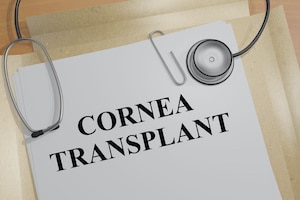What to Expect Before and After: Cornea Transplant
- Posted on: Mar 22 2021
The cornea is the clear, window-like part of your eye. It helps focus light into your eye, enabling you to see clearly. When it is damaged in any way, your vision becomes blurry or distorted. If the damage
A corneal transplant might seem scary if you don’t know exactly what to expect from it. That’s why we’ll dive into what precedes and follows this procedure. Read on to find out.
Weeks Before the Transplant
After making the initial diagnosis, your doctor will talk to you about your options. In most cases, they won’t recommend a transplant if other options are on the table. If they’re not, they will explain why the transplant is the best choice and how it will help you.
After you ask them any questions and think about it, you’ll decide on the date for the surgery. However, you need to remember that this date might change if they don’t find a suitable donor in time.
During this period, you should tell your doctor about any meds you might be taking, as not all of them are safe to take before surgery. Additionally, you will probably have to visit your primary care physician and do a thorough examination. That will ensure you are healthy and ready for the operation.
As the day of the transplant nears, you will have to make other arrangements, too. If you drive a car, you’ll have to find someone to drive you immediately after surgery, as you won’t be allowed to.
The Day of the Transplant
Before your transplant begins, the surgeon will use either local or general anesthesia. That will ensure you feel no pain and are as relaxed as possible. Then, they will do the transplant itself the way you discussed it.
When the procedure is done, your doctor will tape a little shield over your eye. The shield will keep it safe for a few days after the surgery. You will then spend a few hours at the hospital until you fully recover from the anesthesia and are ready to go home. You will have to go back for a checkup the next day.
After the Procedure
Your ophthalmologist will give you some advice that you will need to follow:
- Use your eye drops regularly
- Never rub your eye
- Take pain meds if you need to
Everyone recovers differently. So, you should discuss the process with your doctor, and follow their instructions. They will evaluate your case and come up with a plan that you should stick to. The recovery period can last anywhere from a few months to a year, depending on how your eye heals.
If you feel any pain and discomfort, call your doctor immediately. Do the same if you see any swelling. But don’t panic, as it is probably nothing too serious and your doctor will know how to solve it.
To Conclude
Though it might seem like too complex a process, a corneal transplant is a rather straightforward procedure. Hopefully, our little guide helps calm some of your worries about the surgery. The most important thing is to discuss everything with your doctor beforehand, and always ask any questions you have. That will ensure you stay calm and that the procedure goes well.
Tagged with: Cornea Transplant
Posted in: Cornea Transplant, Eye Care Services
